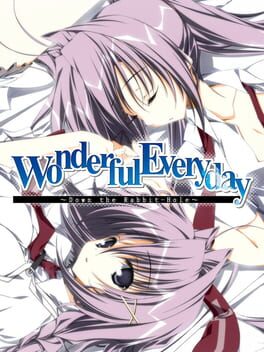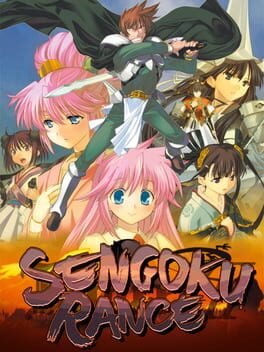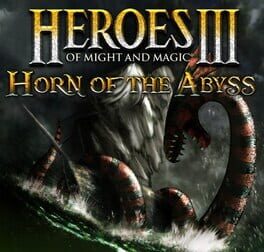This review contains spoilers
Still think about this one a lot, particularly some of the idiosyncratic theories. Is SCA-DI offering one of the very very few honest analysis of futanari? Is Takuji trans? Does Zakuro suffer because she refuses to "live happily"? Does "live happily" entail that we ignore all negative aspects of life? If not, how do we know to stop annotating, like Ayana suggests? Is it really possible, or even further, necessary, for delusions to help cope with life? Why does Ayana's theme contain Morse code stating that she's Mahou Shoujo Riruru? What the fuck was the point of that Asumi interlude? Do we need to know any of the answers to these questions to understand Subahibi? Maybe not, which might tie into SCA-DI's theory that we take stories and narratology too seriously.
On the real though, totally understand why some people despise this, desperately needs an editor and is completely submerged into channer-esque culture (see: the weird ironic homophobia in Jabberwocky I). Still a pretty profound narrative, especially for the medium.
On the real though, totally understand why some people despise this, desperately needs an editor and is completely submerged into channer-esque culture (see: the weird ironic homophobia in Jabberwocky I). Still a pretty profound narrative, especially for the medium.
2006
I could go on about the gameplay loop, but one hidden gem about this game is the meta-interaction between Rance and the player; the oft-memed picture of whether to assault the miko girl or look at her panties is typical AliceSoft dark humor but perfectly captures how the game forces you into Rance's mindset for worse. Anytime the player tries to play to their own sensibilities or morality they're severely punished for it; not having enough sex lowers Rance's battle performance, making some story battles overtly difficult, and trying to play peacefully or mercifully will have the player miss out on several strong benefits needed to beat the late-game factions. By forcing the player into roleplaying Rance, AliceSoft lets the moral dilemma of the Rance series shine through: how can this supreme asshole be the hero of the story?
Nominally, Rance is really only the hero because everyone else in the Ranceverse is a total piece of shit, including the character literally designated to be the "Hero" of the verse, but more deeply, Rance finds his success entirely by being a undefined, hedonistic shithead in a world where everyone else is simply following the pre-determined roles assigned to them. Rance does what Rance wants to get by; the Player does what they can to get by. The finale of Brutal King Rance was a revolution of the created against the creators, a final No Gods No Masters message from AliceSoft; it's only fitting that the spiritual successor to Brutal King Rance would also re-assert that the player themselves is not the master of Rance either. It's a refreshing take on a JRPG protagonist, and provides a lot of food for thought, especially in contrast to AliceSoft's Toushin Toshi II, where the player is explicitly punished for having a moral center anywhere near Rance. I'm not sure I'm fully onboard with using sexual violence as the emotional hook for a lot of the on-paper narrative here, nor the occasional homophobia, but if you can look past that there's a compelling exploration of existential freedom and amorality that's unlike anything else in the media.
Also the design work is incredibly creative and varied, minecraft-esque characters sitting comfortably next to Masamune Date as an eyeball. It slaps.
Nominally, Rance is really only the hero because everyone else in the Ranceverse is a total piece of shit, including the character literally designated to be the "Hero" of the verse, but more deeply, Rance finds his success entirely by being a undefined, hedonistic shithead in a world where everyone else is simply following the pre-determined roles assigned to them. Rance does what Rance wants to get by; the Player does what they can to get by. The finale of Brutal King Rance was a revolution of the created against the creators, a final No Gods No Masters message from AliceSoft; it's only fitting that the spiritual successor to Brutal King Rance would also re-assert that the player themselves is not the master of Rance either. It's a refreshing take on a JRPG protagonist, and provides a lot of food for thought, especially in contrast to AliceSoft's Toushin Toshi II, where the player is explicitly punished for having a moral center anywhere near Rance. I'm not sure I'm fully onboard with using sexual violence as the emotional hook for a lot of the on-paper narrative here, nor the occasional homophobia, but if you can look past that there's a compelling exploration of existential freedom and amorality that's unlike anything else in the media.
Also the design work is incredibly creative and varied, minecraft-esque characters sitting comfortably next to Masamune Date as an eyeball. It slaps.
The best example of gameplay loops I can think of. A very relaxing game when played in isolation, the loop of exploration > rewards > level > clear enemy camps > items > conquer > explore is genius in simplicity and multifaceted in execution, and all the factions offer at least one good reason to play them. Add in some depth in regards to what heroes, upgrades, build orders, etc. are necessary for matchups and maps and you get a very simple to understand yet intricately mechanical strategy game, which is the best you can ask for. HOTA is a much welcome expansion, seamlessly integrating with the base game, at this point it's pretty much a stark upgrade over the base game, though balance is still inherently wonky.
2015
Thinking back on this there is SO much I have left unexplored, and I have platinumed this game, watch my brother do a complete playthrough, completed two separate playthroughs myself, and have a suspended run that is on NG+3. Still haven't seriously explore about half of the weapons, still haven't done a true arcane build, still haven't done a true bloodtinge build, etc. In any other souls-esque build differences are only generically change how you approach PvE (DS1 & DS3 are great examples of this), mainly affecting DPS or optimal ranges, but in Bloodborne going with the Wheel or the Pizza Cutter or the Boom Hammer or the Stake Driver present entirely new ways of playing and breaking the game; entire bosses can change from easy-mode to hard-mode and vice-versa depending on the weapon build. Can't comment on the crazy-ass lore, but the cutscene direction and voice-acting is still in the upper echelons. Ah, Kos, or some say Kosm...



